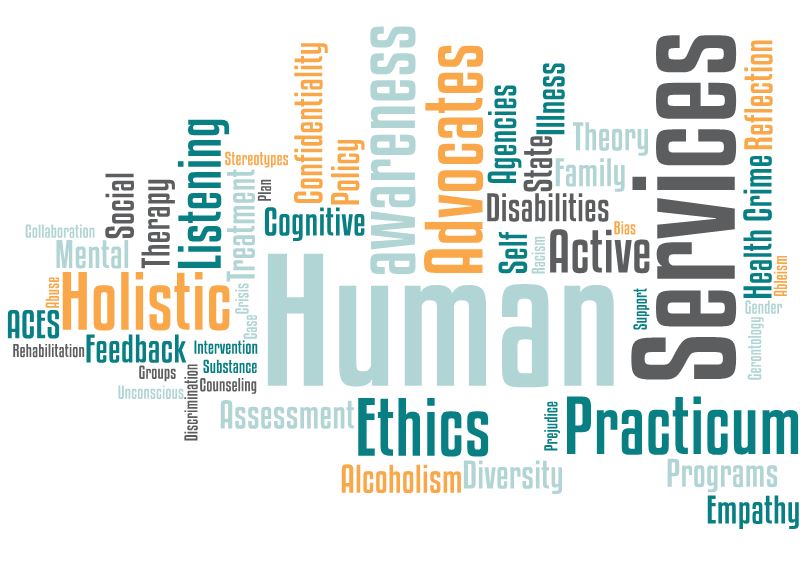
How to Retrain in the Field of Human Services
Choosing a career is a difficult task, especially when you’re still in high school. Many of us complete our education and move into one job role, only to realize a few years later that we made the wrong choice. Others enjoy a satisfying career in one industry for many years, then have the urge to try something different as they get older. What’s great about society these days is that it’s perfectly acceptable to retrain in a whole new industry as an adult, and even to go back to college as a mature student and get another degree. So if you’ve been feeling as though it’s time for a change, the option is open to you.
There are a multitude of different fields that you can choose to retrain in as an adult. This means it’s still possible for you to find a career that perfectly suits you and your lifestyle. Whether you want a job that involves travel, a job working with animals, or a job where you can work from home, all these options are open to you. One common feeling people have is that they want a career in which they can help people. Again there are lots of possibilities here, from becoming a nurse or a teacher to a fitness trainer, but one interesting and varied field to consider is human services.
This post will go into more detail about what exactly we mean by the term ‘human services’, the advantages of becoming qualified in this area, and the sort of careers you can have after taking an online human services degree. We’ll also go over some tips for going back to college as a mature student, which will hopefully be useful regardless of the subject you decide you want to study.
The meaning of ‘human services’
As you might already have guessed, human services simply refers to the work done by any system, program or organization that is deliberately set up to meet people’s needs. This could be helping people on an individual basis, in families or other small groups, local communities, or even at a national or international level. It also covers a wide range of needs, from basic necessities such as food, water and shelter, to more complex needs related to criminal justice or mental health and wellbeing.
Thus you can see that human services is an interdisciplinary field, and lots of different job roles fall under the term of human services professional. This includes counselors, social workers, community workers, disaster relief personnel, probation officers, and drug rehabilitation specialists. You’ll find human services staff working everywhere from schools and hospitals to government agencies, mental health centers, and non-profit organizations.
How to get qualified in human services
Due to the fact that human services is such a broad field with so many different job roles included, the pathways you can take to start working in this area are also very varied. Some specialist roles such as a school counselor have their own degree pathways, but if you want a more general introduction to the sphere, and one that will give you the option to move into a number of different positions, then an online human services degree could be the ideal choice.
An online human services degree and its campus equivalent normally takes four years to complete on a full-time basis, and as much as eight years for part-time students. You have the choice between taking a general program which covers a wide range of topics within the field, or taking a specialist track. These have a narrower focus and go into a specific subfield in more detail, such as criminal justice, community leadership, or mental health.
For those who are retraining as a mature student, an online human services degree can be a more convenient option. This is because it’s flexible enough to enable you to fit your studies around your existing work and home life commitments, without being a compromise in terms of the standard of education you receive. You can study at a time, place and location that suits you, and potentially benefit from lower tuition costs too.

Studying for an online human services degree
If you decide that you want to study for an online human services degree, you will be required to take a series of academic modules that cover different aspects of the field. Some of these will be compulsory, and for the remainder of your credits you will be able to choose electives from a longer list of topics. If you choose to take a specialist track, this will affect the modules that are available to you.
You will need to check the website of the colleges you are considering studying at to find out the exact modules that they offer as part of their human services curriculum. It’s important to do this so you can make sure that the course you apply to covers the topics you are most interested in. The following list gives you a general overview of the sorts of modules that are available on an online human services degree:
- The Human Services Professional
- Living and Learning in a Technological World
- Research Design
- Racial and Ethnic Relations
- Developing the Helping Relationship
- Person-Centered Planning and Case Management
- Measuring the Effectiveness of Human Services
- Crisis and Positive Intervention
- Mental Health Crisis Response
- Understanding Urban Culture
- Prevention and Treatment of Addiction
- Case Management and Addictions
- Advocacy in the Global Community
- Cross-Cultural Psychology
- Abnormal Psychology
- Methods in Psychological Inquiry
- Advocacy and Disability Law
- Disabilities and Family
- Statistics
- Data Analysis
- Public Policy
- Ethics in Public Leadership
- Volunteerism
- Mobilizing and Coordinating Community Response
- Proactive Intervention Strategies
- Human Development
- Social Influences on Behavior
- Child and Family Relationships
- Contemporary Criminal Justice Systems
- Restorative Justice
- Juvenile Delinquency
- Victimology
Each module will be taught using some blend of lectures, seminars, tutorials, group discussions and project work, assigned reading, written examinations and coursework, and presentations. For an online human services degree your lectures could be prerecorded or live, and you will also have access to a virtual learning environment with audio and video materials, forums, and interactive quizzes.
In addition to the modules, you will normally also be required to complete an independent dissertation project towards the end of your course. This will be on an approved topic of your choice, and is a great chance to delve more deeply into a subject that you are especially passionate about and is relevant to your future career goals.
Useful skills for human services professionals
In addition to the knowledge you learn on your online human services degree, there are a number of more general transferable skills that will prove useful in this line of work. It’s a field that involves working with a variety of different people of all ages and backgrounds, whether they’re clients or colleagues. That means strong communication skills are important, including the ability to listen actively and carefully, explain potentially complicated topics to people who are unfamiliar with them, and be observant enough to spot when someone might not be telling you everything.
In line with this it’s also crucial to always be honest and treat people with respect and integrity. This will help people to trust you and open up to you, and therefore you will be better able to help them with their concerns. Patience will also be critical, as sometimes people might be reluctant to work with you or take a while to feel comfortable talking to you. Regardless of the job role you are aiming for, to work in human services of any kind you also need to be compassionate, empathetic, and above all, dedicated to helping people no matter what.
Human services work often involves a lot of administrative tasks. As such, having good organizational skills, attention to detail, and time management will all serve you well. Don’t worry if you don’t have these talents yet, because your online human services degree will be the ideal time to work on them! Similarly, you may often be working on complex issues, so having good problem solving skills, some creativity, and the ability to adapt to changing situations will make your tasks easier.
Finally it’s important to remember that certain fields of human services can be difficult to work in at times. You might have to deal with troubling cases, and situation might not always work out in the way that you hoped. To help you handle this, it’s important to be resilient and have the ability to clearly separate your work life from your home life. That way you can take steps to protect your own mental health and wellbeing.

Advantages of being qualified in human services
There are a great many advantages to taking an online human services degree and becoming qualified in this field. Firstly, and for many most importantly, it enables you to dedicate your career to helping others. Of course you can always volunteer in your spare time, but by making it your job you can give even more time to others while still receiving a salary for your efforts. Consequently it’s a sphere in which people tend to enjoy high levels of job satisfaction.
Perhaps the most fulfilling aspect is that you are truly in a position to change people’s lives. By intervening at the right time, you could prevent someone from descending into a negative spiral of drug addiction and crime, or help a family get back on their feet after a natural disaster. Your work will also have a positive impact on the wider community by making it a happier, healthier, wealthier, and overall more flourishing environment in which to live.
As we touched upon earlier, human services is also a subject that can lead you to a very diverse range of careers. That means it’s not only an interesting field to study, but it’s one that can open up a lot of doors for you. It doesn’t matter if you’re not entirely sure what job role you’re hoping to have after graduating, because you’ll get to explore lots of different options during your online human services degree and figure out which suits you best.
It’s also worth recognizing that human services is a field that will always be needed. It’s a sad fact of life that problems often arise, and sometimes we can’t deal with them by ourselves. As such, being qualified in this area means you can expect to benefit from good levels of employability and job security.
Tips for going back to college education as a mature student
For those who have been out of formal education for a while, the idea of returning to college for an online human services degree might feel a little overwhelming. However it doesn’t have to be! Going back to school in later life is becoming more and more common, and in fact can even have its advantages over studying as a teenager or in your early twenties. This is because you tend to have a more mature outlook on life, and know what you want out of the course and your future career more clearly. Here are some top tips to help make earning your online human services degree less intimidating:
- Figure out how you learn best. For example do you prefer working with audio materials? Are you a visual learner? Do you need to take lots of detailed notes? Knowing the answers to questions like these will help you to study more effectively.
- Create a dedicated study area. If you have the room for a home office that’s great, but even a desk in the corner of the dining room will do. Be sure you have good lighting, an ergonomic setup, and space for all your books and stationery. Then every time you sit down there, your brain will know that it’s time to learn!
- Make time for self-care. Studying for a degree can take up a lot of time, but there’s no point in burning yourself out. Try to fit in quality time for your hobbies, friends and family, make sure you get enough sleep, drink plenty of water, eat healthy, and take regular exercise. Not only is this good for your body, it’s great for your cognitive abilities too!




